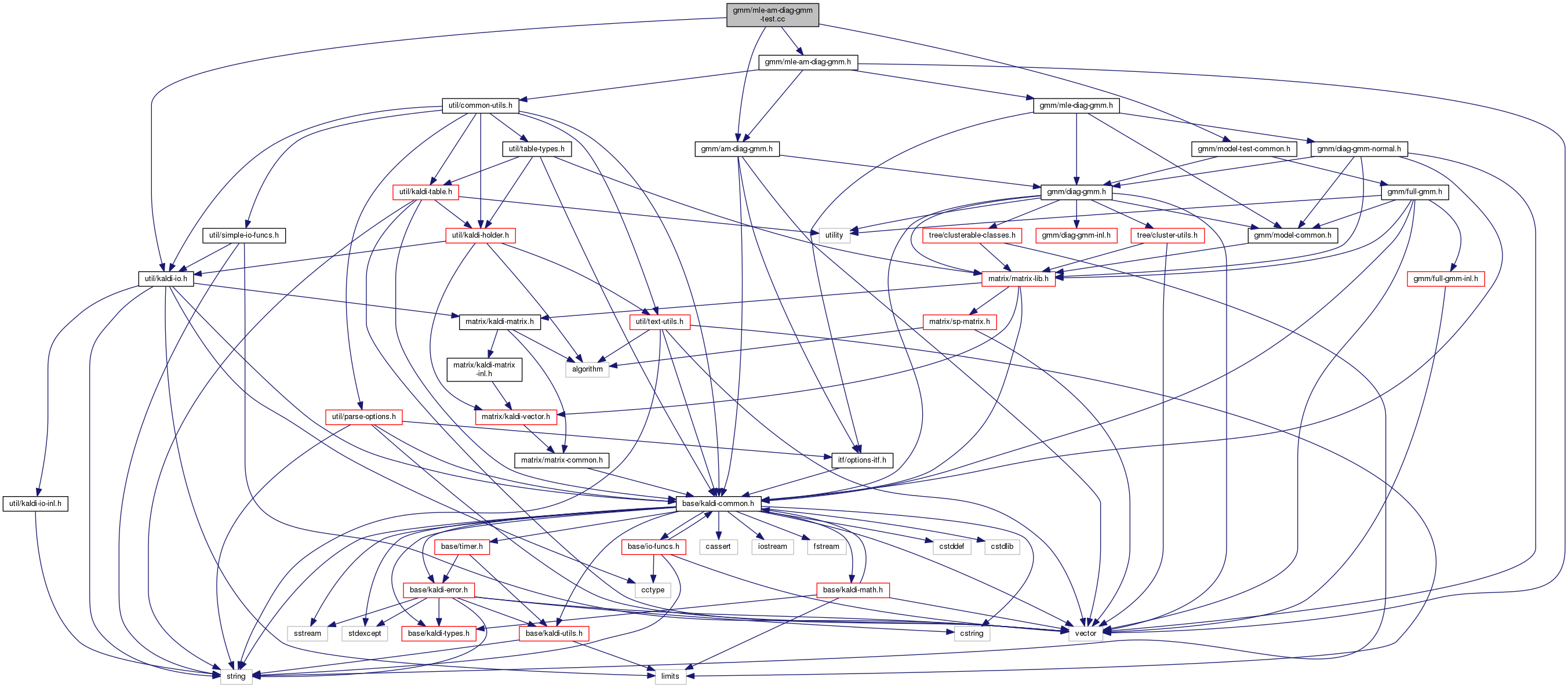#include "gmm/model-test-common.h"#include "gmm/am-diag-gmm.h"#include "gmm/mle-am-diag-gmm.h"#include "util/kaldi-io.h"
Go to the source code of this file.
Functions | |
| void | TestAmDiagGmmAccsIO (const AmDiagGmm &am_gmm, const Matrix< BaseFloat > &feats) |
| void | UnitTestMleAmDiagGmm () |
| int | main () |
| int main | ( | ) |
Definition at line 132 of file mle-am-diag-gmm-test.cc.
References rnnlm::i, and UnitTestMleAmDiagGmm().
Definition at line 34 of file mle-am-diag-gmm-test.cc.
References AccumAmDiagGmm::AccumulateForGmm(), kaldi::AssertEqual(), AmDiagGmm::CopyFromAmDiagGmm(), rnnlm::i, AccumAmDiagGmm::Init(), KALDI_LOG, kaldi::kGmmAll, AmDiagGmm::LogLikelihood(), kaldi::MleAmDiagGmmUpdate(), AmDiagGmm::NumPdfs(), MatrixBase< Real >::NumRows(), kaldi::RandInt(), AccumAmDiagGmm::Read(), MatrixBase< Real >::Row(), Input::Stream(), AccumAmDiagGmm::TotCount(), AccumAmDiagGmm::TotLogLike(), and AccumAmDiagGmm::Write().
Referenced by UnitTestMleAmDiagGmm().
| void UnitTestMleAmDiagGmm | ( | ) |
Definition at line 94 of file mle-am-diag-gmm-test.cc.
References AmDiagGmm::AddPdf(), rnnlm::d, kaldi::Exp(), rnnlm::i, kaldi::unittest::InitRandDiagGmm(), kaldi::unittest::RandDiagGaussFeatures(), kaldi::RandGauss(), kaldi::RandInt(), Matrix< Real >::Resize(), MatrixBase< Real >::Row(), and TestAmDiagGmmAccsIO().
Referenced by main().